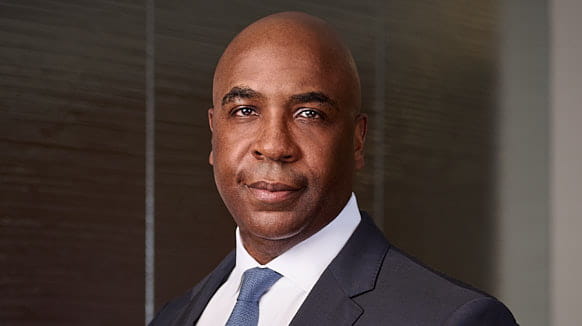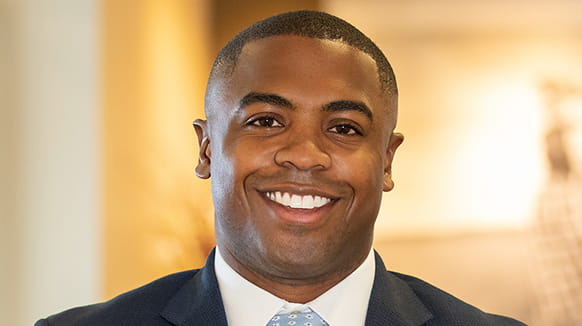On Feb. 24, 2023, the National Collegiate Athletic Association (“NCAA”) issued the first-ever penalties for violations of NCAA rules against university involvement with name, image and likeness (“NIL”) opportunities for prospective student-athletes. The University of Miami reached a negotiated resolution covering alleged impermissible recruiting contact, violations of publicity legislation, and failure to promote an atmosphere of compliance.
Negotiated resolutions have no precedential value, but the penalties assessed against Miami is a warning to all institutions to approach all interactions with donors cautiously. Coaches and other institutional staff routinely meet with donors, and, on their face, such meetings do not violate NCAA Bylaws. However, institutional staff and donors should remember that speaking to donors about sports prospects and connecting donors with prospects are prohibited actions under the NCAA Bylaws, the Interim NIL Policy and some state laws.
Miami’s prompt handling of the NCAA investigation, moreover, offers valuable lessons to other institutions.
A Sea Change:
For decades, the NCAA’s amateurism rules prohibited student-athletes from using their NIL to earn money.1 Two forces outside the NCAA’s control helped change this prohibition. First, the California state legislature passed the Fair Pay to Play Act.2 This law permits student-athletes to earn compensation without losing their scholarships from post-secondary institutions. Many other states followed suit, passing similar laws.3 Second, the Supreme Court of the United States decided National Collegiate Athletic Association v. Alston,4 affirming the Ninth Circuit’s decision that NCAA rules limiting education-related benefits for student-athletes violated section 1 of the Sherman Antitrust Act. While Alston was not about NIL compensation, the ruling combined with pressure from state legislatures paved the way for the NCAA to modify its amateurism rules. Accordingly, the NCAA issued its Interim NIL Policy, which, starting July 1, 2021, permitted student-athletes to engage in NIL activity.5 The Interim NIL Policy was later supplemented and clarified by the NCAA Division I Board of Directors.6 7
NCAA Issues First NIL Ruling:
As reported by the Associated Press, college basketball athletes Haley and Hanna Cavinder (known as “the Cavinder Twins”) began exploring transfer opportunities from Fresno State in March 2022.8 Because the Cavinder Twins are nationally known social media influencers, they were able to leverage their combined five million followers across all social media channels to earn an estimated $1 million through name, image and likeness opportunities.9 The Cavinder Twins were interested in Miami as a program at which they could help the team “win and win big.”10
As Miami’s head coach Katie Meier began recruiting the Cavinder Twins, she happened to attend an event for university administrators, staff, and donors.11 At that event, Meier met John Ruiz, a prominent businessman, Miami donor and active participant in NIL opportunities for Miami athletes.12 Ruiz spoke with Meier about the Cavinder Twins and their possible enrollment at Miami.13 Following this conversation, Meier had two additional conversations with Ruiz about the Cavinder Twins.14 As the Cavinder Twins and their parents prepared for an official campus visit to Miami, Meier and an assistant coach connected Ruiz with the family and told the family that Ruiz would enjoy speaking with them.15 Meier also sent Ruiz university-created profiles of the Cavinder Twins on the morning of Ruiz’s meeting with the family.16 After completing their official visits at Miami and another institution, the Cavinder Twins decided to enroll at Miami.17
Per the Cavinder Twins, the meeting with Ruiz did not impact their decision to join Miami. However, the NCAA Committee on Infractions (“COI”) determined that the following violations of NCAA legislation occurred :18
- Impermissible contact: All contact with prospective student-athletes and their families shall be made only by authorized institutional staff members. Specifically, boosters shall not contact student-athletes on behalf of an institution. NCAA Division I Manual Bylaws 13.1.2.1 and 13.2.1.
- Improper publicity: An institution may not publicly comment on the specifics of its recruiting of prospective student-athletes, including details about a prospect’s visit to campus. NCAA Division I Manual Bylaws 13.10.1.1 and 13.10.1.4.
- Atmosphere of compliance: Head coaches are responsible for promoting an atmosphere of compliance within the program and monitoring the activities of all institutional staff members. NCAA Division I Manual Bylaw 11.1.1.1.
Miami and the COI agreed to several penalties including a three-game suspension for Meier, one year of probation, a fine of $5,000 plus 1% of the women’s basketball budget, and various recruiting restrictions for the 2022-2023 school year.
A Path Forward:
After an institution has discovered a potential violation of NCAA Bylaws, the institution should correct its errors and cooperate with NCAA enforcement staff. Here, the NCAA gave significant weight to Miami’s prompt acknowledgement of its mistakes and the affirmative steps Miami took to expedite final resolution of the matter.
Still, the NIL rules may be the most controversial issue in college sports. Concerns about colleges and collectives “buying” student-athletes compete with athletes’ legitimate interest in controlling their own name, image and likeness — and their own destiny. Individuals and organizations involved in college sports and NIL activity should stay tuned as the NCAA rules and laws develop.
Haynes Boone is an international corporate law firm with offices spanning Texas, New York, California, Charlotte, Chicago, Denver, Virginia, Washington, D.C., London, Mexico City and Shanghai. Haynes Boone’s Sports Law Practice Group has represented professional teams, leagues, team owners, lenders and companies involved in the industry on a broad range of matters. Haynes Boone will continue to monitor developments related to NIL. If you have any questions about NIL or other NCAA developments, please contact the authors of this alert.
1 NCAA Division I Manual Bylaw 12.
2 California Senate Bill No. 206 (2019).
3 See, e.g., Florida Senate Bill No. 646 (2020) and Kentucky Senate Bill 6 (2022).
4 NCAA v. Alston, 141 S. Ct. 2141 (2021).
5 NCAA, Interim NIL Policy (June 30, 2021). Available at: https://ncaaorg.s3.amazonaws.com/ncaa/NIL/NIL_InterimPolicy.pdf
6 NCAA, Interim Name, Image and Likeness Policy Guidance Regarding Third Party Involvement (May 9, 2022). Available at: https://ncaaorg.s3.amazonaws.com/ncaa/NIL/May2022NIL_Guidance.pdf
7 NCAA, Institutional Involvement in a Student-Athlete’s Name, Image and Likeness Activities (October 26, 2022). Available at: https://ncaaorg.s3.amazonaws.com/ncaa/NIL/D1NIL_InstitutionalInvolvementNILActivities.pdf
8 Tim Reynolds, Basketball’s Cavinder twins say they’ve transferred to Miami, AP News (April 21, 2022). Available at: https://apnews.com/article/sports-basketball-media-miami-social-media-cb6850352a12134b7bf93daddc7a65da
9 Id.
10 Id.
11 NCAA, Recruiting violations occurred in Miami (Florida) women’s basketball program (February 24, 2023). Available at: https://www.ncaa.org/news/2023/2/24/media-center-recruiting-violations-occurred-in-miami-florida-womens-basketball-program.aspx
12 NCAA, Negotiated Resolution – University of Miami (Florida) – Case No. 020161 (February 24, 2023). Available at: https://ncaaorg.s3.amazonaws.com/infractions/decisions/FEB2023D1INF_COIPublicReportUniversityMiamiFL.pdf
13 Id.
14 Id.
15 Id.
16 Id.
17 Id.
18 Id.

